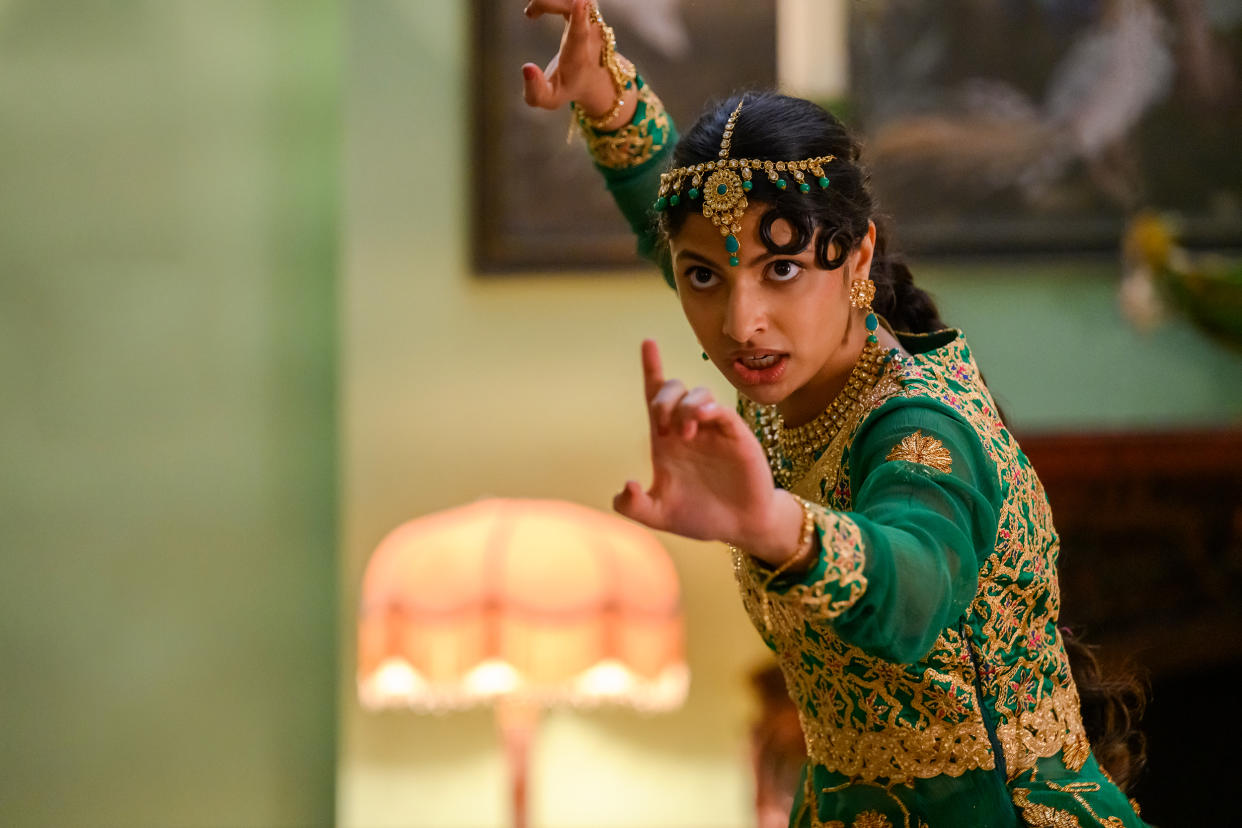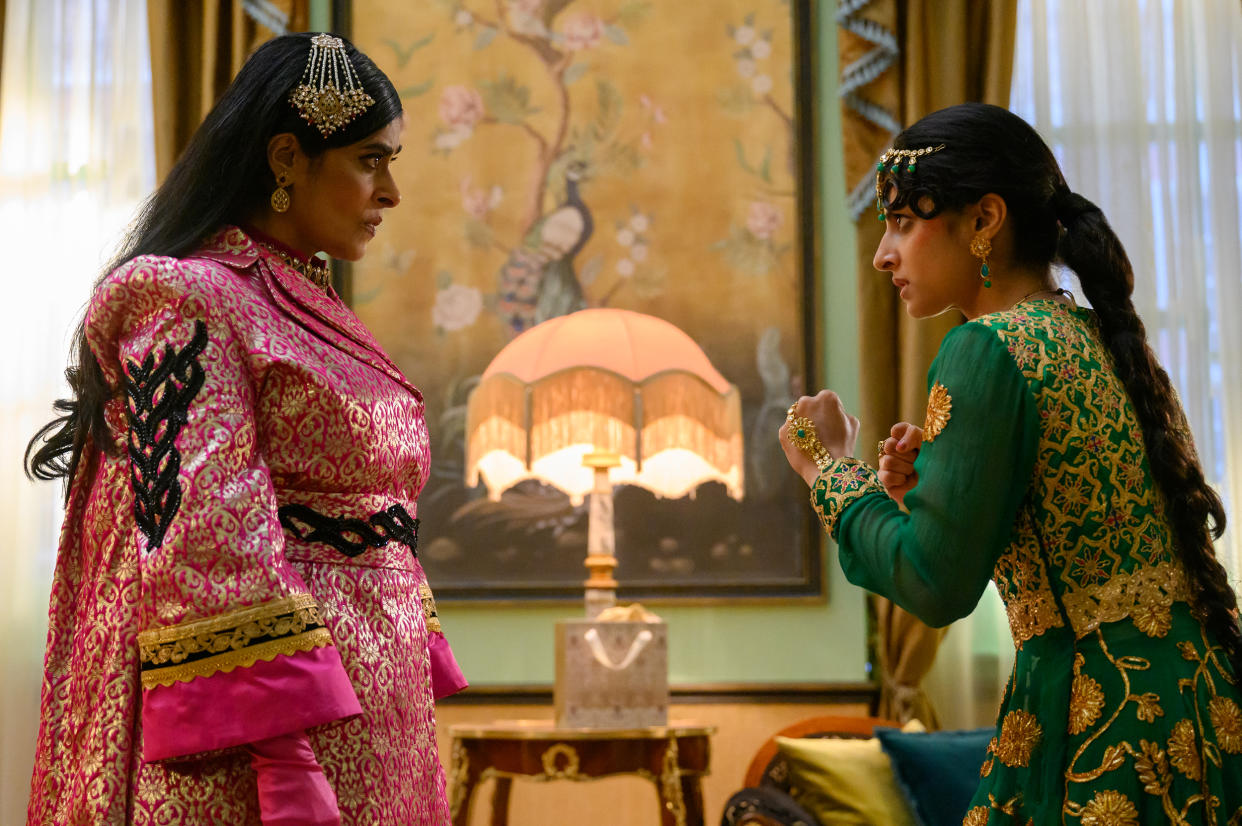Stars of 'Polite Society' say the action film is a 'love story between sisters'
Warning: This article contains minor spoilers.
Ria Khan will do anything for her big sister, and that includes saving her from the shackles of a suspicious marriage and an evil mother-in-law by orchestrating a larger-than-life wedding heist.
In the new action-comedy film, “Polite Society,” which debuts in theaters Friday, schoolgirl and aspiring stuntwoman Ria shares a special bond with her sister, Lena (Ritu Arya), who recently dropped out of art school. The two are best friends, and after Lena’s unexpected engagement to a man with an uncomfortably close relationship to his mother, Ria devises a plan to bring her sister to safety.
“Ria is such a spirited and passionate person. She really truly will go to the ends of the earth to save her sister from anything,” Priya Kansara, who plays Ria, told NBC News. “It’s just such an ode to sibling relationships but also goes through all of the ups and downs that that relationship consists of.”
Lena is struggling with her self-worth and re-evaluating her future after dropping out of school when she’s introduced to Salim (Akshay Khanna), a successful and handsome doctor, at an extravagant Eid celebration at the home of Salim’s mother, Raheela (Nimra Bucha). Lena and Salim begin dating and the two are engaged within a month.
The sudden engagement shocks everyone and while her parents are thrilled with the news, Ria is less than excited. Arya said while it was a surprise for Lena to get engaged, it’s also the kind of person she is.
“She surprises herself [by getting] engaged that quickly because she’s sort of a rebel at heart,” she said. “I think it’s very unexpected that Lena would do that, and that’s also why she does it.”
Kansara also emphasized that while the film is about Lena’s relationship with Salim and Raheela, it’s about the sisters at its core.

“This story truly is a love story between the two sisters. It’s the heart of this film. It’s what keeps the audience truly connected throughout all the craziness, throughout all the action, the entire roller coaster that it is,” she said.
Arya believes Lena’s decision to get married is multifaceted; she’s unpredictable, but also feels the pressure of being a positive role model for Ria.
“There’s one thing that’s [easy] like completely supporting your sibling because you have unconditional love,” she said. “I think we can have a lot of pressure on ourselves as older siblings … to be a guiding light, and we need help just as much as they do.”
Ria is quick to tell Lena and her parents about her concerns regarding Raheela and Salim. She eventually takes matters into her own hands, and her worries are validated when she finds out shocking information that jeopardizes Lena’s life. Kansara said Ria’s often irrational behavior is because she’s overprotective of Lena.
“[She is one of the] only people in the world who supports her so unconditionally, particularly in her dream of being a stunt woman. Then, seeing Lena go through all of the things that she’s going through in terms of doubting her own ability to be an artist makes Ria question herself as well,” she said. “And then there’s this feeling that it’s Salim that’s taking her away from her dream makes her feel like that even more.”
She said she knows Ria’s behavior is a part of her growing up and understanding herself.
“I think Ria wants to defy societal norms. She’s at this age where she’s really discovering what it is to be a feminist, to understand how our culture and community affect the way in which we live our lives,” Kansara said.

Arya and Kansara also said they both recognized the significance of Raheela being the villain in the film.
“This is such a female-led film, whether it’s the good, the bad or the ugly. It’s all the women in this film that really carry all of those things. I feel like there’s an interesting power play there with the fact that Raheela is the one that’s the evil one and Salim is her little sidepiece,” Kansara said.
Arya said Raheela’s fear of aging, which is often a concern for women as they get older, made her character more complex and understandable.
“She’s such a likable villain and we can empathize with her because there’s so much currency in society, when you’re a younger woman, and you can feel like you’re losing that as you get older,” she said. “I think that’s where Raheela’s motivation is coming from and so we love and hate her.”
